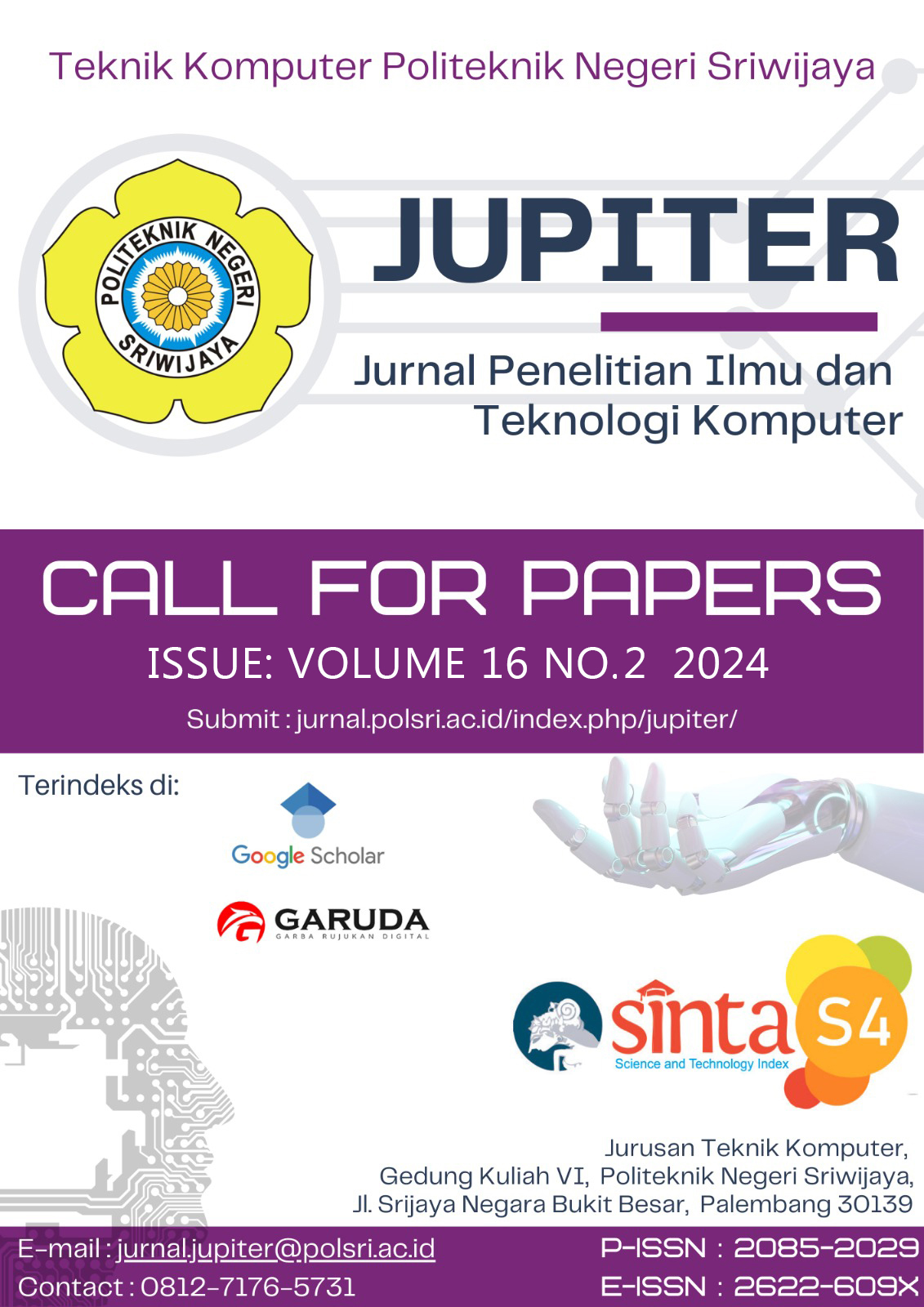Evaluasi Kinerja Model YOLOv8 dalam Deteksi Kesegaran Buah
DOI:
https://doi.org/10.5281/zenodo.11296226Abstract
A The classification of fruit freshness has significant implications in the food and agriculture industry in Indonesia. Fruit freshness not only affects the quality of the products sold but is also crucial in ensuring consumer safety and reducing food wastage. Non-fresh fruits can become a source of microbial contamination and can cause food poisoning if consumed. Based on these factors, various image processing technologies such as ResNet, DenseNet, MobileNetV2, NASNet, and EfficientNet, CNN, DCNN, etc., have been developed to assist the industry in real-time and efficient classification and detection of fruit freshness. Therefore, this research aims to explore another algorithm, namely YOLOv8, to evaluate the accuracy and precision performance in detecting fruit freshness. In this study, it was found that the YOLOv8 model with 100 epochs and a batch size of 8 yielded a confusion matrix result with an accuracy of 88%. At high confidence levels, the model was able to detect fruit freshness with an average precision of 97%. However, at low confidence levels, the average recall reached 87%. At a balanced confidence level (0.50), the precision and recall F1-Score reached an average of 73%. Evaluation beyond the confidence level showed a precision of 74% and a recall of 75%. These results indicate that the YOLOv8 model has not yet reached an optimal level compared to other algorithms that have an accuracy above 90%. This could possibly be due to the limited number
Downloads
Downloads
Published
How to Cite
Issue
Section
License
Copyright (c) 2024 arie ardiansyah, Joko Triloka, indera indera

This work is licensed under a Creative Commons Attribution 4.0 International License.







